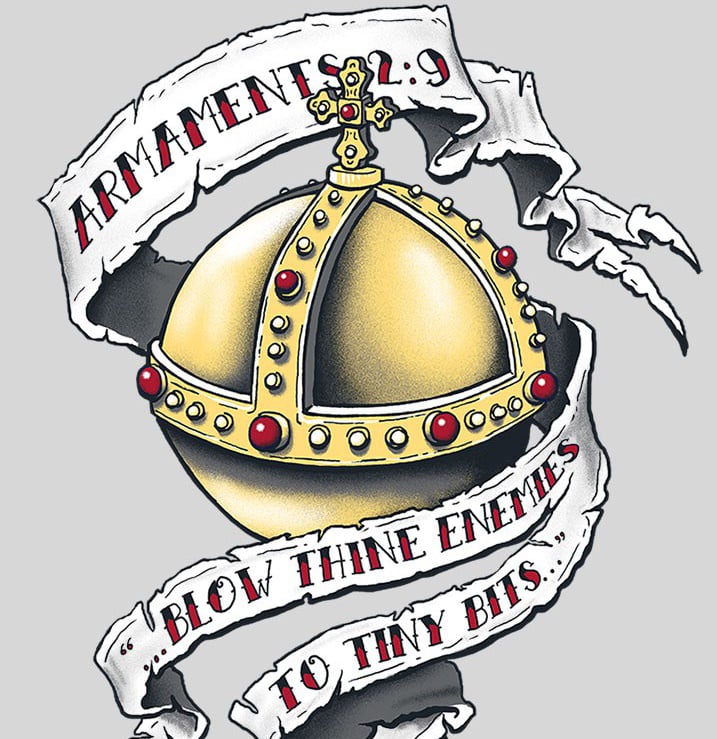Frosty the golem
He fashioned ice into a shiv
He was stood in place with a placid face
Roll for initiative
There must have been some magic in
That elder rune they found
For when they carved it in his head
He began to slash and pound
A gargoyle (crafted as a construct to protect a religious order) in the campaign I’m currently in is called Emet, which to my understanding is how אמת is pronounced (translating to truth). In the myth, removing א from their name makes it מת, death, and the golem dies. The pronunciation changes from Emet to Met and I’m always a little interested to see if this will pop up in some from in the game.
You are correct, it is pronounced Emet. In the golem story the word Emet or Met is just the activation word, the golems is actually alive because the full name of the lord (which is like 200~ letters) was carved into a tablet and put inside the golem.
I know that the post is a joke but in Hebrew, the name for God is יחוח which are the hebrew characters Yod Hei Waw Hei
You mixed up ח and ה, unless you’re just trying to censor the name itself
In Hebrew, there are many names for God - some of which are plural (a remnant from when Judaism was polytheistic).
It’s also vav, not waw. The sound is a v.
Hard to forget a decade of Hebrew school.
Vav is a product of ashkenaszi pronunciations due to yiddish. Originally it’s Waw. And the multiple names for God thing comes from Kaballah which certain groups of Jews actually do reject as mysticism and not originally being grom Judaism but added in after the second temple period due to the Zohar. Certain groups such as the Kairaites for example, even reject the Talmud, Mishnah, and Kaballah and stick to Torah and Tanakh only
Vav is a product of ashkenaszi pronunciations due to yiddish. Originally it’s Waw.
Vav has nothing to do with Yiddish.
The pronunciation shift occurred in a large number of groups that didn’t speak Yiddish, and shifts like that also aren’t uncommon cross-linguistically.
The exact same shift happened in Italian, as well: v in classical Latin made a w sound, but morphed to a v in most romance languages.
Pronunciation shifts don’t have to come out of influence of other languages, they just kinda happen normally on their own. Sometimes this causes spelling changes (such as the many Spanish words with an h that came from a Latin f, like hablo or hijo), other times it changes the sound of the letter, such as how the Greek phi went from an aspirated p to an f sound, or a j went from a y sound to an English j.
And the multiple names for God thing comes from Kaballah
Kabbalah talks about the multiple names of god, but the Torah itself uses a number of different names for god.
For that matter, look at Hebrew names. You have names like Matityahu (gift of god), Daniel (god is my judge), and eliyahu (god is my god), using different names of god. Why do biblical Hebrew names use both el and yahu to refer to god, if multiple names was a kabbalistic innovation?
It’s vav across many, if not most, Jewish ethnicities (not sure why you’d single out ashkenazi Jews) as well as predominantly a ‘v’ sound in almost all cases. I googled it and found that waw is accurate if we were talking about semitic origins of the letter, not its modern usage in Hebrew.
Adonai, Elohim, and El Shaddai. All 3 names are used in the Torah and all 3 are plural. We were taught that the God of Israel was one of many gods, but that the ancient Israelites were specifically chosen by this god. This god liked to war with the chosen people of other gods and the Torah is full of those tales. Basically, I’m not talking about kaballah but the authors of the Torah using multiple words for the name of God, some of which being plural.
I singled out Ashkenazi jews as most westerners aren’t aware of other groups such as Mizrahi or Sephardi. It was for ease of following conversation in case anyone else stumbled upon the comment thread. And yeah, I was referring to the original pronunciation of the letter and the original form of the Tetragrammaton.
In terms of the usage of Adonai, Elohim, El Shaddai, or even Hashem, those are used at titles such as “Lord” and not the actual name of the Deity of Abraham correct? When you said “multiple names of God”, I assumed you meant the Kaballah teaching that there are 72 names of God


